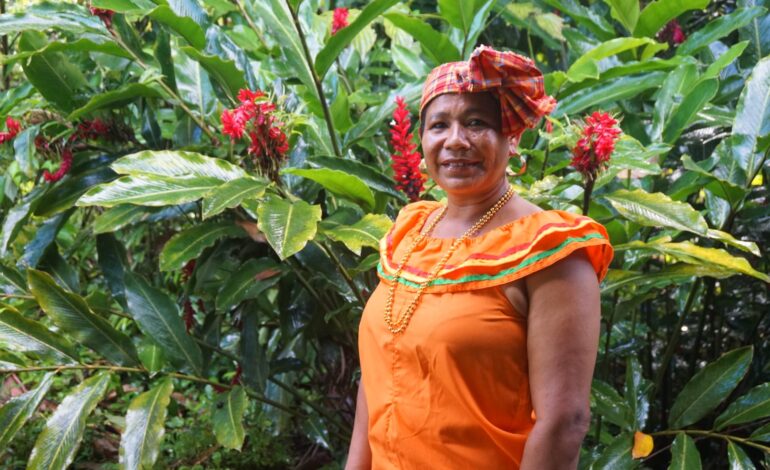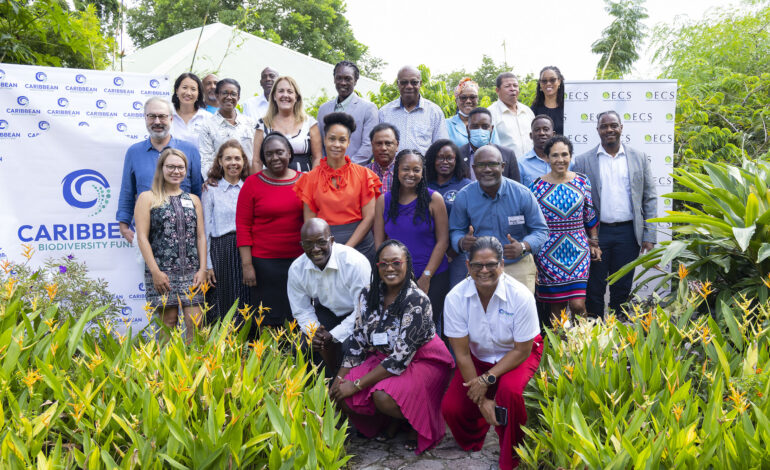
OECS Member States have adopted environmental policy frameworks that set goals for sustainable development, maintaining and restoring ecosystems, and managing marine and coastal ecosystems. Achieving these outcomes is largely dependent on sourcing adequate financing. The Caribbean Biodiversity Fund (CBF) was established in 2012 to create reliable, long-term funding for conservation and sustainable development in the Caribbean region.
The OECS, in partnership with the Caribbean Biodiversity Fund (CBF), the German Agency for International Cooperation (GIZ), and the International Conservation Caucus Foundation (ICCF), conducted a Sustainable Finance Knowledge Exchange Workshop in Dominica between September 27 and 28, for managers and representatives of National Conservation Trust Funds (NCTFs) from several Caribbean territories, including Cuba, to share experiences and lessons learned on the management of Marine Managed Areas (MMAs) and fundraising for conservation initiatives. The gathering also sought to provide guidance and support to the Steering Committee of the newly formed Dominica National Conservation Trust Fund.
Dr. Volker Hamann, Sustainable Marine Financing Team Leader for GIZ expressed his satisfaction with the event’s outcome. “The GIZ Sustainable Marine Financing Project would like to thank the CBF and OECS for the joint organization, and the German Embassy in Trinidad for financial support of this important workshop. After moving to the Caribbean in January 2021, I am delighted to finally have my first face-to-face meeting with many of our partners. All participating countries face similar challenges and obstacles when it comes to nature conservation. Setting up sustainable financing structures is one of the most important and urgent tasks in this regard. The exchange of strategies and experiences between Marine Managed Areas and Conservation Trust funds is crucial for the successful conservation of marine (and terrestrial) space. We hope that this is only the first of a series of regional exchange formats among practitioners in the area of sustainable financing for marine conservation.”
The ICCF facilitated the expert contribution of Dr. Justin Ram, CEO of Justin Ram Advisory Associates and GSEC, to address the meeting and provide pertinent insights. Dr. Ram advised that “new and innovative financing mechanisms can potentially advance the Blue Economy (BE) in the OECS. Emerging financing mechanisms, which have been tried and tested within the climate change and sustainable development agenda present viable options for the Blue Economy, which include Conservation Trust Funds.” Dr. Ram was a lead contributor of the recent OECS Assessment Report On Sustainable Financing Options For The Blue Economy (through the CROP Project https://oecs.org/en/crop), and he has over twenty-five years of practical, advisory research and management experience in the Caribbean Region.
The CBF has supported the establishment of 11 Conservation Trust Funds in the Caribbean region. Conservation Trust Funds (CTFs) are private, legally independent institutions that provide sustainable financing for biodiversity conservation. The core business of CTFs is to mobilise resources from diverse sources, including international donors, national governments, and the private sector, and to direct them, primarily through grants to a diverse range of environmental programmes and projects through non-governmental organisations, community-based agencies, and governmental agencies.
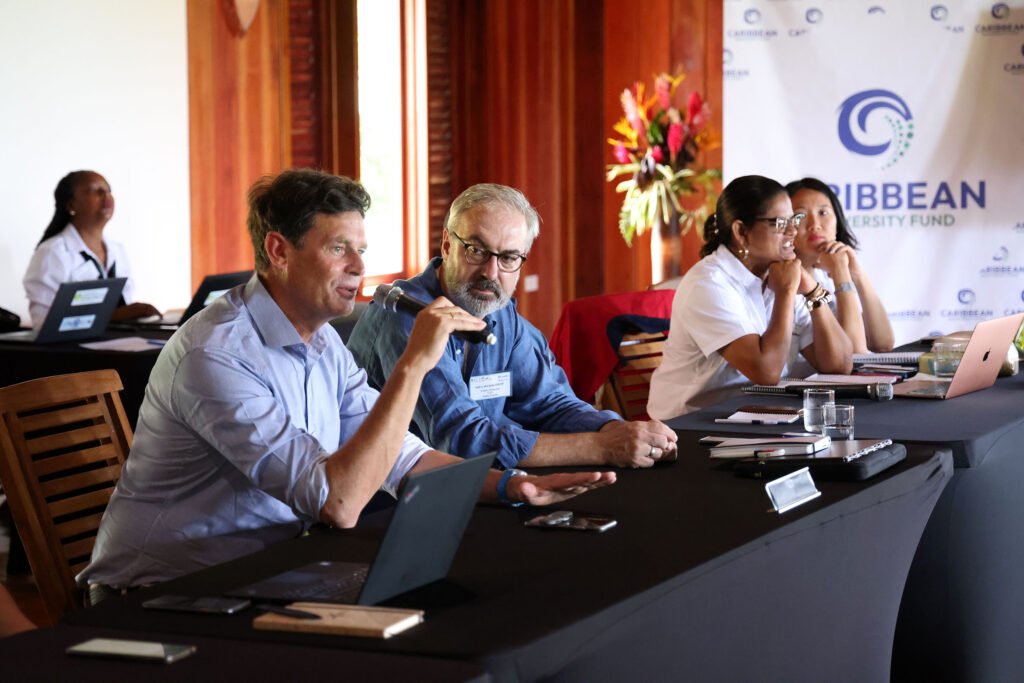
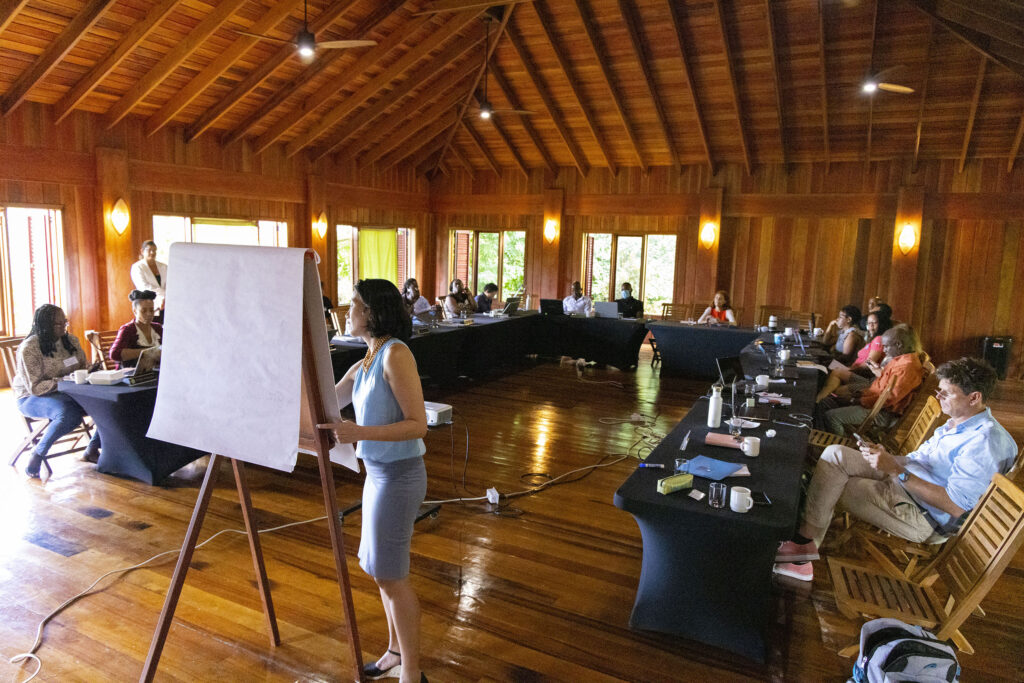
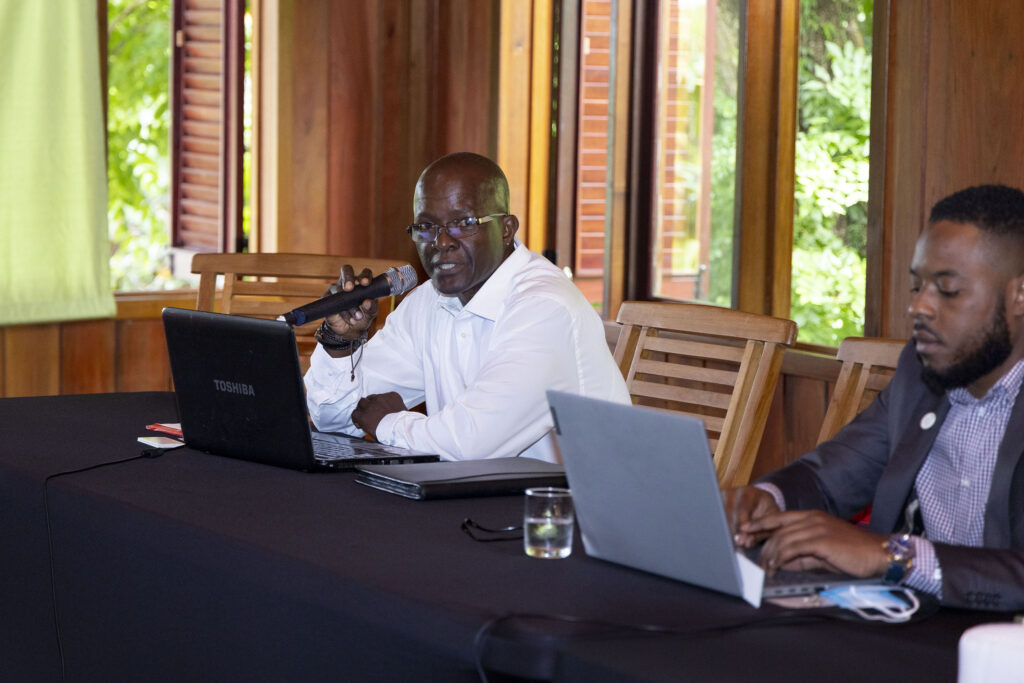
The CBF through its Conservation Finance Program focuses on the provision of funding towards the protection and management of biodiversity and natural resources and is mainly supported through the Endowment Fund. The proceeds of this Fund are invested in country-based sub-accounts and are channeled through partner National Conservation Trust Funds (NCTFs), who in turn lead grant-making programs at the national level. CBF and the NCTFs work together in the design and implementation of additional financial mechanisms that provide a required match to complement the CBF resources. The Program also includes an organisational development component aimed at strengthening the network of NCTFs that are part of the Caribbean Sustainable Financial Architecture.
At the conclusion of the Workshop, Technical Specialist with the OECS Environmental Sustainability Division, Jannel Gabriel, said, “We are extremely pleased to be part of this initiative. One of the greatest challenges in our efforts to conserve nature is accessing sustained funding and having the flexibility to allocate donated funds towards our prioritised activities. This knowledge exchange will allow the sharing of information on the best strategies to manage Conservation Trust Funds, identify and establish networks and partnerships, and gather tips on how Trust Funds can leverage the value of biodiversity to access innovative sources of financing. We wish the Dominica Conservation Trust Fund every success in its mission to conserve the region’s natural resources.”
Dr. Hamann’s concluding remarks summarized the ultimate vision of the workshop’s partners: “Our partners and us envision in the long run to increase harmonization and coordination between countries, NCTFs, and MMAs in the region, so conservation goals can be achieved jointly. It has to be clear that the ultimate goal of the conservation activities is to secure and improve the livelihoods in communities and secure them for the future.”
Workshop Participants and Partner Representatives
Site visit to Scotts Head, Dominica
Site visit to Scotts Head, Dominica
About the Caribbean Biodiversity Fund
The Caribbean Biodiversity Fund was established in 2012 to create reliable, long-term funding for conservation and sustainable development in the Caribbean region.
The Caribbean Biodiversity Fund (CBF) is a regional umbrella environmental fund that uses a flexible structure to implement innovative solutions and consolidate resource mobilization in the Caribbean through a range of financial instruments.
Currently, the CBF has two programs:
1. the Conservation Finance Program, based on an endowment fund, and
2. the Climate Change Program, focused on Ecosystem-based Adaptation (EbA) strategies.
A Nature-based Solutions program will be added to the CBF portfolio by October this year.
For more information, please contact: [email protected] or visit www.caribbeanbiodiversity.org










